Israel’s economy shrank amid war with Iran
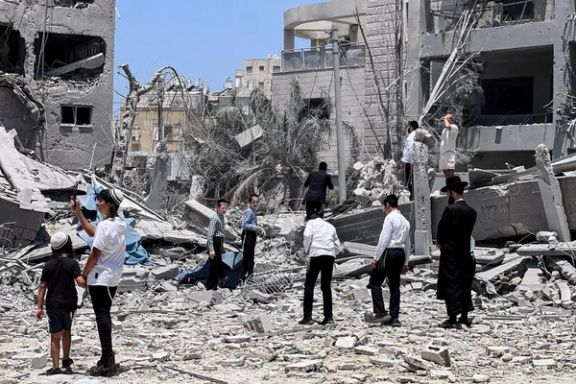
Israel’s economy shrank 3.5 percent in the second quarter of the year as the 12-day war with Iran disrupted businesses and investment, the country’s Central Bureau of Statistics said on Sunday.

Israel’s economy shrank 3.5 percent in the second quarter of the year as the 12-day war with Iran disrupted businesses and investment, the country’s Central Bureau of Statistics said on Sunday.
From April to June, Israel’s business sector contracted 6.2%. Private consumption dropped 4.1%, public spending fell 1%, and investment in fixed assets plunged 12.3%, signaling weakening confidence.
Exports of goods and services, excluding startups and diamonds, declined 3.5%, while imports, excluding defense purchases, rose 3.1%.
The downturn followed the June conflict with Iran, which began after Israel attacked military and nuclear sites on June 13.
Iran responded with missile strikes that forced many Israelis into shelters.
The United States joined on June 22 with airstrikes on Iran’s nuclear facilities at Fordow, Natanz, and Isfahan. A US-brokered ceasefire took effect on June 24, ending the 12-day war.
Bank of Israel Governor Amir Yaron told Bloomberg in late June that the fighting was likely to cost nearly $6 billion or 1% of GDP.
Analyst Andreas Krieg told TRT World that overall losses could reach between $11.5 billion and $17.8 billion, around 2% to 3% of Israel’s economy.
Costly for Tehran
The conflict also took a heavy toll on Iran’s economy.
Krieg estimated Iran’s direct and indirect losses at $24 billion to $35 billion, equal to 6% to 9% of its $380 billion GDP.
The conflict also dealt a heavy blow to Iran’s trade: non-oil exports in June totaled $3.4 billion, according to Iranian customs statistics—a 34% drop from a year earlier.
Iran’s digital economy was also hit.
The communications minister reported a 30% contraction and losses of 150 trillion rials (about $170 million) in one month, attributing the damage to widespread internet restrictions imposed during the fighting.
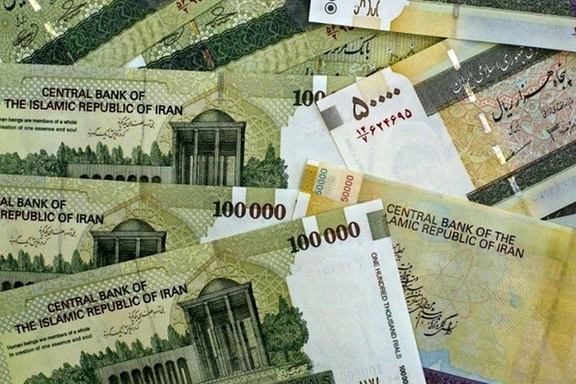
Iran has introduced a new law making inflation partly taxable, a move that critics say effectively charges citizens twice amid the country’s economic crisis.
President Masoud Pezeshkian formally signed the tax bill on Friday, passed by parliament in late June.
The law targets capital gains on real estate, vehicles, gold, jewelry, silver, platinum, foreign currency, and even cryptocurrencies.
“For properties held between two and five years, 50 percent of inflation is considered,” said Mehdi Movahedi Beknazar, spokesperson for Iran’s Tax Administration in July. “If the property is held for more than five years, full inflation adjustment is applied.”
In effect, tax will be levied on the profit plus 50 percent of the increase in asset prices due to inflation.
For example, if a citizen buys an apartment in 2024 for 50 billion rials (about $55,500) and, due to 40 percent inflation, its value rises to 80 billion rials (about $88,800) in 2025, the 30 billion rial increase (about $33,300) is treated as profit, and therefore is taxable.
Iran’s year-on-year inflation rate rose to 41.2% last month, marking the highest level in two years, according to Iran's Statistical Center.
The Ministry of Economy has been tasked with creating a smart system that links to registries of deeds, the stock exchange, customs and the Central Bank to identify transactions subject to the law.
A first-of-its-kind approach
State media have praised the law for “taking inflation into account,” framing it as a tool against hoarding in a country where inflation often exceeds 40 percent.
Under the 28-article law, assets sold within a year will be taxed at 20–40 percent, with lower rates applying to longer holding periods. Exemptions include primary homes, one family car, and production-related properties such as farms and factories.
Penalties for evasion include blocked property transfers, bans on commercial activity, and fines of up to twice the tax owed.
Global benchmarks
Most nations impose capital gains taxes, but none explicitly tax inflation in the same way.
The United States taxes nominal gains without inflation adjustment. Britain used to allow inflation indexation until 1998 but abolished it. Chile and Brazil adjust long-term gains for inflation, while Australia offers a 50-percent discount for assets held over a year.
Authorities argue the law will curb speculative activity in housing, cars, and gold sectors, where prices have soared and wealthier Iranians often shelter assets.
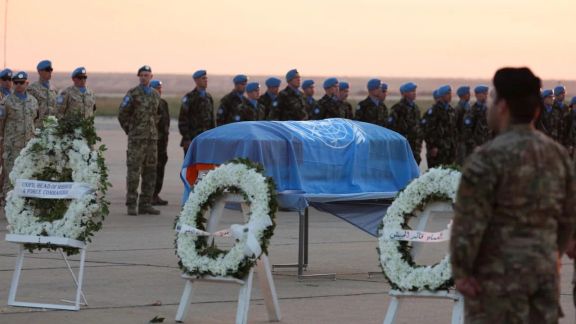
A Hezbollah member sentenced to death in absentia for the 2022 killing of Irish UN peacekeeper Private Seán Rooney in Lebanon is believed to be hiding in Iran, Ireland’s Sunday World newspaper reported, citing diplomatic sources.
Mohammad Ayyad was convicted by a Lebanese military tribunal latein July for his role in the fatal attack on a UN convoy near the village of Al-Aqbiya, south of Beirut. He was not present at the trial, and Lebanese authorities have not disclosed his whereabouts.
“We suspect he is in Iran and it is unlikely anyone will hand him over to face a death penalty,” one diplomatic source told the newspaper. “It is not a satisfactory situation but all we can do is keep the pressure on and see if we can get justice for Seán and his family.”
Rooney, 23, from Dundalk, was killed on December 14, 2022, when a group of armed men opened fire on the peacekeepers’ vehicle as they travelled towards Beirut airport. Three other Irish soldiers were injured in the attack.
According to Sunday World, several other Lebanese men received lighter sentences over the shooting, including short jail terms, fines, or acquittals. The Beirut government has appealed the verdicts following pressure from Ireland and Rooney’s family, the paper said.
Irish Defense Minister Simon Harris said last week that Dublin continues to press for accountability. “The Government has repeatedly stressed the need for justice to be served in this case. We have raised the issue with the UN and the Lebanese authorities,” he said after meeting Rooney’s mother, Natasha.
Lebanon has not carried out an execution in more than 20 years, and Irish officials have indicated they would prefer Ayyad serve a life sentence rather than face capital punishment.
An Irish coroner’s inquest into Rooney’s death has been postponed, while an independent review of the circumstances surrounding the attack, led by barrister Michael Delaney, is underway and expected to conclude in the autumn.
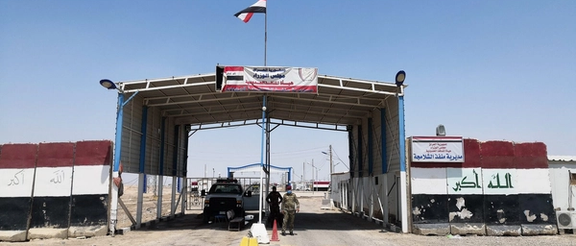
Iran’s top security official said the new security agreement that Tehran and Baghdad signed last week is aimed at preventing foreign powers from destabilizing the region, while Iraq played down the pact as a simple border agreement.
“We must not allow others to destabilize the region. Instead, we should preserve stability along this path. That is why we signed an important security agreement with Iraq,” Ali Larijani, Secretary of Iran’s Supreme National Security Council, said in a televised interview about his recent visit to Baghdad and Lebanon.
The agreement includes “a mutual commitment to prevent any disruption by individuals, groups, or third countries, in such a way that no party can use the other’s territory against the other side or create breaches in security,” Larijani said.
He linked the deal to recent regional tensions, saying that “even in the past 12-day war this issue was taken into consideration; part of the war was supported from the skies of some countries," referring to nations Iran says supported Israel's attacks on Iran.
On Wednesday, however, Iraq’s National Security Advisory issued a clarification rejecting reports of a new agreement, stressing instead that a memorandum of understanding on border security had been signed.
The advisory said the agreement builds on a 2023 protocol concerning Iranian Kurdish opposition groups. It emphasized that “there is no security agreement between the two countries; rather, it is a security memorandum of understanding.”
Washington voices opposition
Iraq’s National Security Advisor Qassem al-Araji met with US Chargé d’Affaires Steven Fagin on Saturday to discuss the deal, which Washington has opposed.
In their meeting, Araji “reviewed the details of the security memorandum of understanding signed between Iraq and the Islamic Republic of Iran regarding border control, which contributes to supporting regional security and stability, preventing smuggling and infiltration,” his office said.
Washington, however, has argued the deal undermines Iraqi sovereignty. “We oppose any legislation that is inconsistent with the goals of our bilateral security assistance and partnership and runs counter to strengthening Iraq’s existing security institutions,” State Department spokesperson Tammy Bruce said Tuesday.
“We support genuine Iraqi sovereignty, not legislation that would turn Iraq into an Iranian satellite state,” she added.
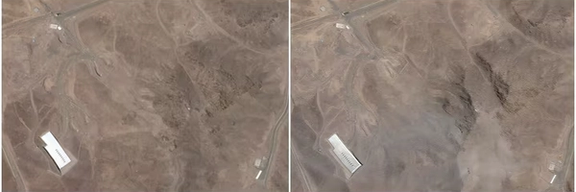
Washington is not capable of launching another military conflict against Iran and is constrained by the risks of soaring energy prices, a senior cleric in the Office of Supreme Leader Ali Khamenei said on Friday.
“Today, there is talk about the possible resumption of a military war, but it seems the enemy does not have the capability to attack again and fears Iran’s power. The Americans also fear the prospect of $150 oil and cannot endure such a situation,” said Ali Saidi.
“While evidence shows no immediate threat, the armed forces must remain on alert and strengthen their communications.”
A day before, Ali Larijani, secretary of Iran’s Supreme National Security Council, suggested dialogue with the United States could be possible, provided it is directed toward a genuine resolution.
“If the United States realizes it cannot defeat the Islamic Republic through war and then seeks negotiations, we will respond positively. But if they negotiate to prepare for the next war, it will be of no benefit to us,” he told Lebanon’s Al-Mayadeen.
France, the United Kingdom, and Germany have separately warned Iran they will reinstate UN sanctions unless Tehran reopens nuclear talks and produces tangible results by the end of August.
Earlier negotiations under the Trump administration collapsed when Israel launched military strikes on June 13, one day after a 60-day ultimatum expired. On the ninth day of the conflict, the United States bombed three Iranian nuclear facilities, which US President Donald Trump said had “obliterated” the program.
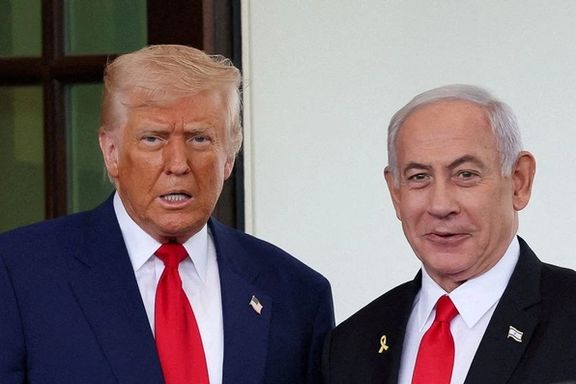
Washington has outsourced its Iran policy to Israel following the 12-day war, former Obama-era negotiator Alan Eyre told Iran International, warning that the Trump administration now sees Iran's nuclear issue as resolved despite the remaining risks.
On June 22, the United States joined Israel’s campaign against Iran and carried out airstrikes on its key nuclear facilities at Fordow, Natanz, and Isfahan.
"President Trump said the [Iranian] nuclear program is obliterated. They seem to have put it in the ‘mission accomplished’ category,” Eyre told Iran International's podcast, Eye for Iran.
Under Obama, Under Secretary of State Wendy Sherman worked closely with world powers to keep the 2015 nuclear deal alive, balancing many interests through complex diplomacy — a sharp contrast to today’s one-track coordination with Israel, Eyre said.
"There’s pretty much one person in the foreign affairs who he is coordinating with, and that’s Prime Minister Netanyahu," Eyre said, "The gentleman in charge, Mr. Witkoff, has a lot of other stuff on his plate to include Gaza and Ukraine. We’re really not paying any attention to the Iran portfolio. We have sort of outsourced it to Israel.”
Signals of a renewed fight
Tehran’s decision to revive its Supreme Defense Council — a wartime command body not convened since the Iran–Iraq War — is widely seen as a signal it expects the ceasefire with Israel to be temporary.
The move suggests Iranian leaders are bracing for renewed conflict and working to reestablish what Eyre described as “some type of strategic deterrence,” from rebuilding air defenses to restoring missile and nuclear capabilities.
Tehran at a crossroads
Weakened by war and diplomatic deadlock, Iran’s clerical elite faces a stark choice: defy pressure to halt its nuclear activity and risk further Israeli and US attack or concede and risk a leadership fracture.
A fragile ceasefire ended the 12-day war in June. Both sides claimed victory, but the war exposed vulnerabilities and punctured Iran’s image of deterrence.
Three Iranian insiders told Reuters the political establishment now views nuclear negotiations with Washington as the only way to avoid further escalation and existential peril. The Israeli strikes began just a day before a planned sixth round of talks with the US.
Supreme Leader Ali Khamenei and Iran’s political leadership have agreed in principle to resume nuclear talks with Washington, seeing diplomacy as essential to preventing further US–Israeli strikes.
E3 Snapback Threat Adds Pressure
Britain, France, and Germany have warned they are prepared to trigger the UN’s “snapback” sanctions mechanism if Iran does not return to talks by the end of August.
Eyre said that even after the attacks, Iran retains the industrial capacity, enriched uranium, and technical knowledge to produce a nuclear weapon if it chooses.
“The fork in the road now is — does it try to reconstitute what it had before, or does it try something else… like moving toward a nuclear weapon?” he said.
You can watch the full episode of Eye for Iran on YouTube or listen on any major podcast platform like Spotify, Apple, Amazon, or Castbox.